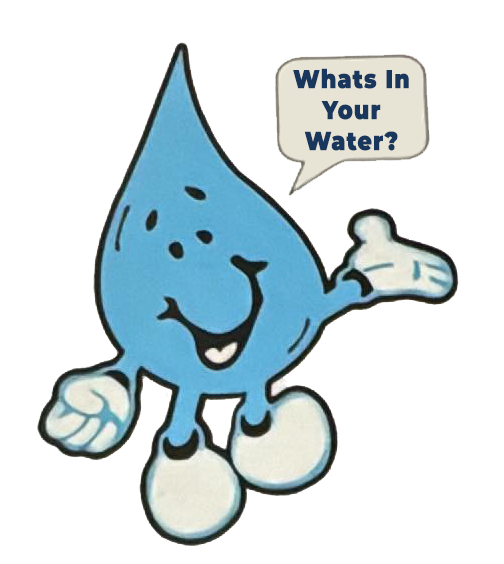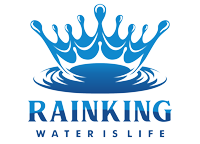Food is an integral part of our lives, and for restaurant and food service businesses, ensuring that the food they serve to customers is safe and hygienic is of utmost importance. The quality of water being used in the cooking process plays a major role in that regard. Water systems for restaurants and food services are designed to ensure safe and clean water for commercial kitchens. When it comes to creating a safe and hygienic environment in the kitchen, having a reliable and efficient water system is essential. Quality water is a key factor in producing safe food and diminishing the risk of health problems related to food-borne illnesses and contamination. A commercial kitchen needs to meet all the local safety and sanitation regulations as well, which can be achieved by having the right water system in place. The age-old question of how to best ensure clean and safe water for commercial kitchens has been debated for generations. In recent years, technologies have advanced so far and wide that there is no need to worry about that anymore. By installing water systems for restaurants and food services, businesses have the peace of mind that their water is safe, clean, and reliable.
Benefits of Water Systems for Restaurants and Food Service
It’s no secret that having clean and safe water is critical for food service businesses. Not only does it help prevent food-borne illnesses, but it also plays a key role in improving the quality of the food. With a water system for restaurants and food services, businesses can be confident that their water is safe, clean, and reliable. Here are some of the benefits of having a water system for restaurants and food service:
- Safe and hygienic water: A water system for restaurants and food service is designed to ensure safe and clean water for commercial kitchens. This helps to prevent waterborne illnesses and food contamination.Cost savings: Installing a water system for restaurants and food service can help to reduce costs, as it eliminates the need for frequent water testing and maintenance.Healthier food: Clean water is essential for producing healthy and safe food, and a water system can help to ensure the quality of the water being used.Better taste: Clean water can help to improve the taste of food, as it reduces the risk of hard-water deposits and chlorine buildup.Environmentally friendly: Water systems for restaurants and food service are designed to be eco-friendly, as they use efficient and sustainable technologies.
Types of Water Systems
When it comes to water systems for restaurants and food service, there are a few different types to choose from. Each type of water system has its own unique features and benefits, so it’s important to research and understand the different options before making a decision. Here are some of the most common types of water systems for restaurants and food service:
- Reverse osmosis water systems: This type of water system is one of the most popular, as it removes impurities such as bacteria, viruses, and chemicals from the water. It utilizes a process known as reverse osmosis, which removes contaminants through the application of pressure.
- Ultraviolet water systems: This type of water system is designed to disinfect the water by using ultraviolet rays. The rays kill any bacteria or viruses present in the water, making it safe to drink.
- Carbon filtration systems: This type of water system uses a filter to remove any impurities from the water. The filter is designed to trap particles such as bacteria, viruses, and chemicals.
- Activated carbon systems: This type of water system uses activated carbon to remove contaminants from the water. The carbon is designed to attract and bind to any impurities in the water, making it safe to drink.
Components of Water Systems
In order to ensure that the water in a commercial kitchen is safe and clean, there are a few components that need to be included in the water system. Here are some of the most common components of a water system for restaurants and food service:
- Water treatment system: This is essential for any commercial kitchen. A water treatment system helps to remove any impurities from the water, such as bacteria, viruses, and chemicals.Water filter: A water filter helps to remove any particles in the water, such as dirt and debris. This helps to ensure that the water is free of contaminants.UV light: A UV light is used to disinfect the water. This helps to kill any bacteria or viruses that may be present in the water.Water softener: This is used to reduce the amount of minerals in the water. This helps to prevent hard-water deposits and chlorine buildup.Water storage tank: This is used to store the water. This helps to ensure that there is a steady supply of water in the kitchen.



Water Quality Regulations
In order to ensure the safety of the food being served, it’s important to adhere to local water quality regulations. Different states and countries have different water quality regulations, so it’s important to understand the regulations in your area. Some of the most common regulations include:
- Requiring a water treatment system: Most states and countries require a water treatment system to be installed in a commercial kitchen. This helps to ensure that their water is free of contaminants.
- Requiring a water filter: Many states and countries require a water filter to be installed in a commercial kitchen. This helps to ensure that the water is free of any dirt and debris.
- Requiring a water softener: Many states and countries require a water softener to be installed in a commercial kitchen. This helps to reduce the amount of minerals in the water, which can help to improve the taste of the food.
- Requiring a UV light: Many states and countries require a UV light to be installed in a commercial kitchen. This helps to disinfect the water, which can help to reduce the risk of foodborne illnesses.
Maintenance and Testing Considerations
In order to keep the water in a commercial kitchen safe and clean, it’s important to have a maintenance and testing routine in place. This helps to ensure that the water system is running efficiently and effectively and that the water is free of contaminants. Here are some of the most important things to consider when it comes to maintenance and testing:
- Checking for leaks: It’s important to regularly check for any leaks in the water system. This helps to ensure that there are no contaminants entering the water, which can be harmful to health.
- Testing the water: It’s important to regularly test the water to ensure that it is safe and free of contaminants. This can be done with a water test kit, which is readily available.
- Cleaning the filter: It’s important to regularly clean the filter in the water system. This helps to ensure that the water is free of contaminants and that the filter is working properly.
- Replacing parts: It’s important to replace any worn or damaged parts in the water system. This helps to ensure that the system is running efficiently and effectively.
Troubleshooting Common Problems
When it comes to water systems for restaurants and food service, it’s important to be aware of any potential problems that may arise. Here are some of the most common problems, and how to troubleshoot them:
- Leaking pipes: If you notice any water leaking from the pipes, be sure to turn off the water supply and call a plumber to fix the problem. This helps to prevent any water contamination.
- Clogged filter: If the filter in the water system becomes clogged, it’s important to replace it. This helps to ensure that the water is free of contaminants and that the filter is working properly.
- Low water pressure: If you notice that the water pressure is low, it’s important to check the pipes for any blockage. This helps to ensure that the water is flowing freely and that the system is running efficiently.
- No water: If the water system stops working, it’s important to check the power supply. This helps to ensure that the system is receiving power and that the water is flowing freely.
Final Considerations
When it comes to ensuring the safety of the food being served in a commercial kitchen, it’s important to have a reliable and efficient water system in place. Water systems for restaurants and food service are designed to ensure safe and clean water for commercial kitchens. By understanding the benefits, types, components, water quality regulations, maintenance and testing considerations, and troubleshooting common problems of water systems for restaurants and food service, businesses can be sure that their water is safe, clean, and reliable. Having a reliable water system is essential for producing safe and healthy food. By having the right water system in place, restaurants and food service businesses can be sure that their water is safe, clean, and reliable, and that the food they serve is safe and healthy.



